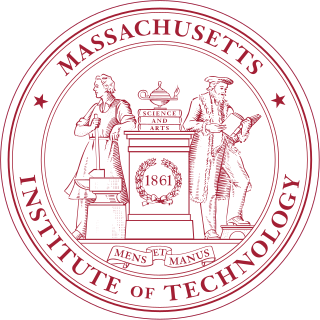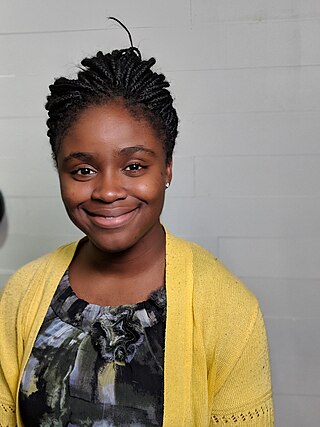This article contains wording that promotes the subject in a subjective manner without imparting real information.(March 2021) |

Ron Samuel Dembo is an academic and entrepreneur.
This article contains wording that promotes the subject in a subjective manner without imparting real information.(March 2021) |

Ron Samuel Dembo is an academic and entrepreneur.
This section of a biography of a living person does not include any references or sources .(January 2024) |
From 1976 to 1986, Dembo served as a professor at Yale University. [1] [2] [3] During this time, he held joint appointments in both the Department of Computer Science and the School of Management. He co-authored three Technical Reports at Yale's Dept. of Computer Science in 1984. [4] Additionally, he served as a visiting professor at the Massachusetts Institute of Technology (MIT). The online faculty listings at Yale's and MIT's Computer Science and Management Dept.'s do not reflect Mr. Dembo's employment there at this time. [5] [6] [7] [8]
Dembo's scholarly contributions encompass a diverse range of subjects, including finance and mathematical optimization. He is listed as inventor for patents in fields such as computational finance, climate change, and software engineering.
Dembo was founder and CEO of Algorithmics Incorporated. [9] Algorithmics was sold to Fitch in 2005 [10] and later to IBM in 2012. [11] It has since been acquired by SS&C. [12]
In 2005, Dembo founded Zerofootprint Software, a Toronto-based, cleantech software and services company. [13] In the same year, he founded the non-profit Zerofootprint Foundation [14] which won gold in the Climate Change category at the Canadian Environment Awards in 2008. [15] In 2009, Dembo also established the ZERO prize, a one million dollar prize for a design to retrofit a concrete building built between 1945 and 1990. [16]
He currently sits on a number of boards and is a member of the Climate Change Adaptation Advisory Committee Canada and was appointed to the Steering Committee of the World Urban Campaign, coordinated by UN-Habitat. [17]
In May 2007, Dembo was made a lifetime Fields Institute Fellow. [18] This fellowship is awarded to "individuals who have made outstanding contributions to the Fields Institute," its programs, and to the Canadian mathematical community. [19] Dembo's alma mater, the University of Waterloo, honored Dembo with a Distinguished Alumni Achievement Medal for Professional Achievement in business and climate change, 2007. [20]
In 2008, he received a Green Toronto Award from the City of Toronto for his work with Zerofootprint, [21] as well as a Certificate of Recognition, Champion of Green from the Government of Ontario. [22]
In 2009 and 2010, Dembo participated in the Steering Committee of the World Urban Campaign, as coordinated by UN Habitat, in Barcelona, [23] Paris [24] and Rio de Janeiro. [25] [26] As of 2022, Partners may nominate themselves for positions on the Steering Committee and Committee membership is subject to a vote. [27] In 2024, Zerofootprint remains a Partner in the Business and Industries Constituency of the World Urban Campaign by UN Habitat. [28]
Dembo is the author of three books: Seeing Tomorrow: Rewriting the Rules of Risk, co-authored with Andrew Freeman, published in April 1998; Upside Downside: Simple Rules of Risk Management for the Smart Investor, co-authored with Daniel Stoffman, published in March 2006; and Everything You Wanted to Know About Offsetting But Were Afraid to Ask, co-authored with Clive Davidson and released in May 2007. His latest book, Risk Thinking, was published in 2021 ( ISBN 978-1665707008).

The Massachusetts Institute of Technology (MIT) is a private land-grant research university in Cambridge, Massachusetts. Established in 1861, MIT has played a significant role in the development of many areas of modern technology and science.

Ronald Linn Rivest is a cryptographer and computer scientist whose work has spanned the fields of algorithms and combinatorics, cryptography, machine learning, and election integrity. He is an Institute Professor at the Massachusetts Institute of Technology (MIT), and a member of MIT's Department of Electrical Engineering and Computer Science and its Computer Science and Artificial Intelligence Laboratory.

Charles Eric Leiserson is a computer scientist and professor at Massachusetts Institute of Technology (M.I.T.). He specializes in the theory of parallel computing and distributed computing.

James Harris Simons was an American hedge fund manager, mathematician, and philanthropist. He was the founder of Renaissance Technologies, a quantitative hedge fund based in East Setauket, New York. He and his fund are known to be quantitative investors, using mathematical models and algorithms to make investment gains from market inefficiencies. Due to the long-term aggregate investment returns of Renaissance and its Medallion Fund, Simons was described as the "greatest investor on Wall Street," and more specifically "the most successful hedge fund manager of all time".

Maria Margaret Klawe is a computer scientist and served as the fifth president of Harvey Mudd College from 2006 to 2023. Born in Toronto in 1951, she became a naturalized U.S. citizen in 2009. She was previously Dean of the School of Engineering and Applied Science at Princeton University. She is known for her advocacy for women in STEM fields.
The United Nations Human Settlements Programme (UN-Habitat) is the United Nations programme for human settlements and sustainable urban development. It was established in 1977 as an outcome of the first United Nations Conference on Human Settlements and Sustainable Urban Development held in Vancouver, Canada, in 1976. UN-Habitat maintains its headquarters at the United Nations Office at Nairobi, Kenya. It is mandated by the United Nations General Assembly to promote socially and environmentally sustainable towns and cities with the goal of providing adequate shelter for all. It is a member of the United Nations Development Group. The mandate of UN-Habitat derives from the Habitat Agenda, adopted by the United Nations Conference on Human Settlements in Istanbul, Turkey, in 1996. The twin goals of the Habitat Agenda are adequate shelter for all and the development of sustainable human settlements in an urbanizing world.

The Donald E. Knuth Prize is a prize for outstanding contributions to the foundations of computer science, named after the American computer scientist Donald E. Knuth.
Ronald Baecker is an Emeritus Professor of Computer Science and Bell Chair in Human-Computer Interaction at the University of Toronto (UofT), and Adjunct Professor of Computer Science at Columbia University. He was the co-founder of the Dynamic Graphics Project (DGP), and the founder of the Knowledge Media Design Institute (KMDI) and the Technologies for Aging Gracefully Lab (TAGlab) at UofT. He was the founder of Canada's research network on collaboration technologies (NECTAR), a founding researcher of AGE-WELL, Canada's Technology and Agine research network, the founder of Springer Nature's Synthesis Lectures on Technology and Health, and the founder of computers-society.org. He also started five software companies between 1976 and 2015. He is currently an ACM Distinguished Speaker.

Steven Elliot Koonin is an American theoretical physicist and former director of the Center for Urban Science and Progress at New York University. He is also a professor in the Department of Civil and Urban Engineering at NYU's Tandon School of Engineering. From 2004 to 2009, Koonin was employed by BP as the oil and gas company’s Chief Scientist. From 2009 to 2011, he was Under Secretary for Science, Department of Energy, in the Obama administration.

Richard Ryan Williams, known as Ryan Williams, is an American theoretical computer scientist working in computational complexity theory and algorithms.
Zerofootprint is a cleantech software and services company based in Toronto, Canada. The company develops software that makes environmental impact measurable, visible and manageable for corporations, governments, institutions and individuals. Their product is designed with the overriding to determine its client's ecological footprint and to help them pursue the means to reduce it.

John Cameron Urschel is a Canadian-American mathematician and former professional American football guard. He played college football at Penn State and was drafted by the Baltimore Ravens in the fifth round of the 2014 NFL Draft. Urschel played his entire NFL career with Baltimore before announcing his retirement on July 27, 2017, at 26 years old.

Bonnie Anne Berger is an American mathematician and computer scientist, who works as the Simons professor of mathematics and professor of electrical engineering and computer science at the Massachusetts Institute of Technology. She is the head of the Computation and Biology group at MIT's Computer Science and Artificial Intelligence Laboratory. Her research interests are in algorithms, bioinformatics and computational molecular biology.

Yoshua Bengio is a Canadian computer scientist, most noted for his work on artificial neural networks and deep learning. He is a professor at the Department of Computer Science and Operations Research at the Université de Montréal and scientific director of the Montreal Institute for Learning Algorithms (MILA).
Daniel Mier Gusfield is an American computer scientist, Distinguished Professor of Computer Science at the University of California, Davis. Gusfield is known for his research in combinatorial optimization and computational biology.

Joy Adowaa Buolamwini is a Canadian-American computer scientist and digital activist formerly based at the MIT Media Lab. She founded the Algorithmic Justice League (AJL), an organization that works to challenge bias in decision-making software, using art, advocacy, and research to highlight the social implications and harms of artificial intelligence (AI).
Marzyeh Ghassemi is a Canada-based researcher in the field of computational medicine, where her research focuses on developing machine-learning algorithms to inform health-care decisions. She is currently an assistant professor at the University of Toronto's Department of Computer Science and Faculty of Medicine, and is a Canada CIFAR Artificial Intelligence (AI) chair and Canada Research Chair in machine learning for health.
The MIT Stephen A. Schwarzman College of Computing is the computing college at the Massachusetts Institute of Technology (MIT), private land-grant research university in Cambridge, Massachusetts. Announced in 2018 to address the growing applications of computing technology, the college is an Institute-wide academic unit that works alongside MIT's five Schools of Architecture and Planning, Engineering, Humanities, Arts, and Social Sciences, Science, and Management. The college emphasizes artificial intelligence research, interdisciplinary applications of computing, and social and ethical responsibilities of computing. It aims to be an interdisciplinary hub for work in artificial intelligence, computer science, data science, and related fields. Its creation was the first significant change to MIT's academic structure since the early 1950s.

Inioluwa Deborah Raji is a Nigerian-Canadian computer scientist and activist who works on algorithmic bias, AI accountability, and algorithmic auditing. Raji has previously worked with Joy Buolamwini, Timnit Gebru, and the Algorithmic Justice League on researching gender and racial bias in facial recognition technology. She has also worked with Google’s Ethical AI team and been a research fellow at the Partnership on AI and AI Now Institute at New York University working on how to operationalize ethical considerations in machine learning engineering practice. A current Mozilla fellow, she has been recognized by MIT Technology Review and Forbes as one of the world's top young innovators.
Andrea Suzanne LaPaugh is an American computer scientist and professor emerita of computer science at Princeton University. Her research has concerned the design and analysis of algorithms, particularly for graph algorithms, problems involving the computer-aided design of VLSI circuits, and document retrieval.
...He [Dembo] had a distinguished ten-year academic career at Yale University where he was cross appointed in Computer Sciences and Operations Research
Forbes Technology Council Is A Vetted Professional Organization For Senior-Level Technology Executives.... To qualify, you must be a senior-level technology executive and your company must generate at least $1,000,000 USD in annual revenue, or have received $1,000,000 USD in funding to date. Eligible applicants are vetted by our selection committee, and if approved, are invited to select and purchase a membership package.
He explained that 40 per cent of the United States' total energy consumption could be attributed to operating buildings and that over 90 per cent of buildings in most big cities were aging.